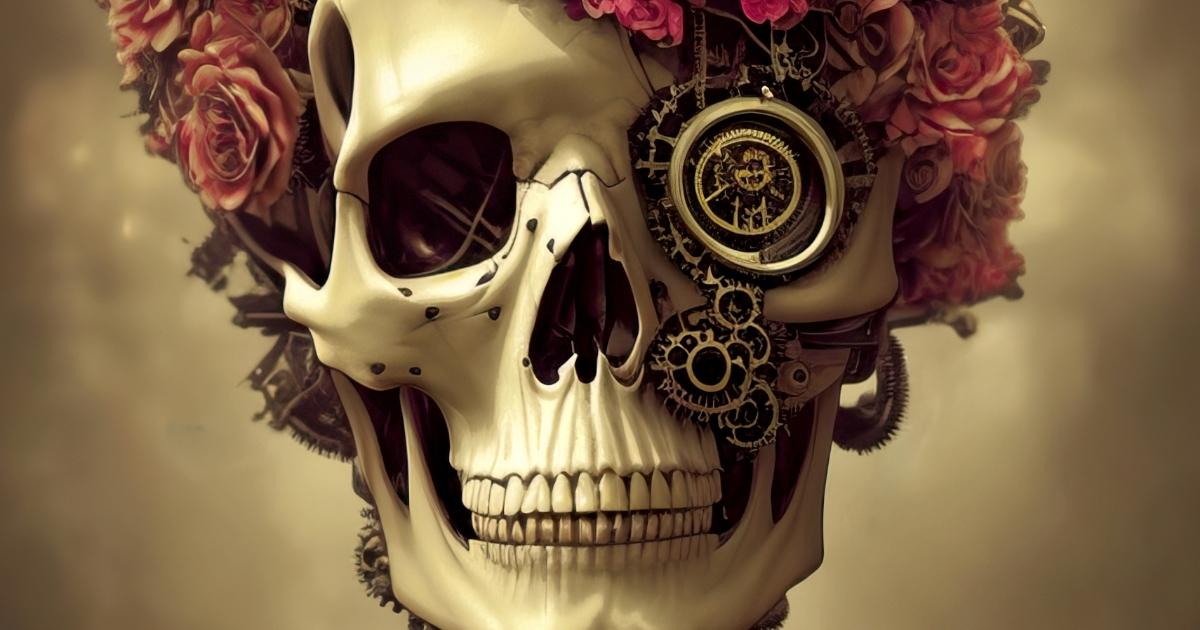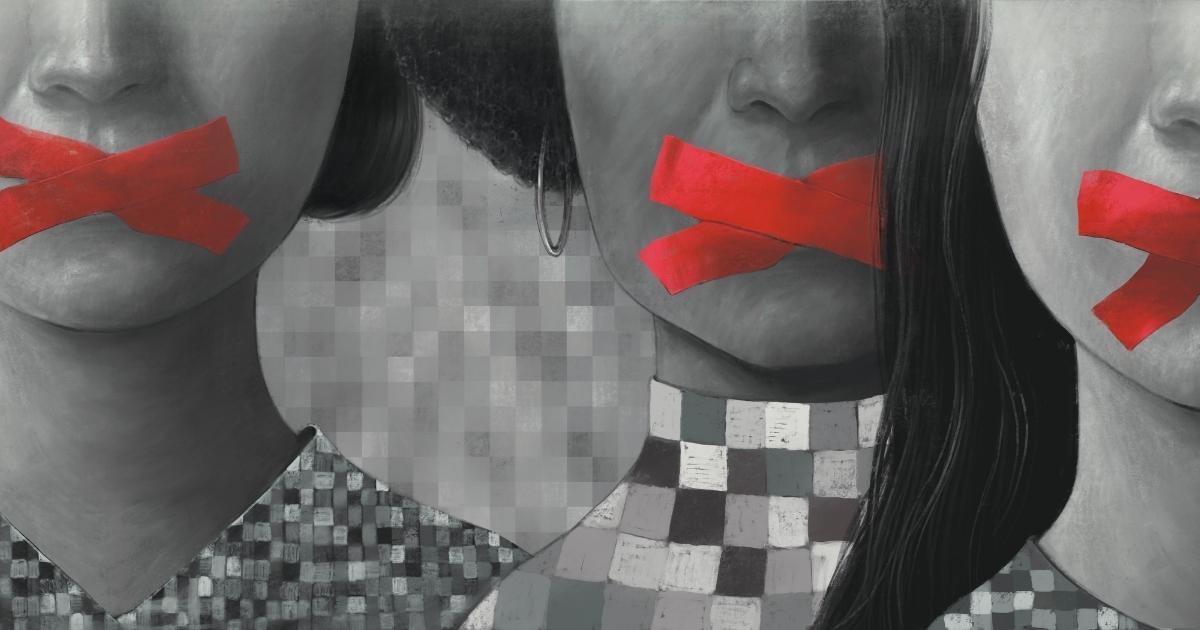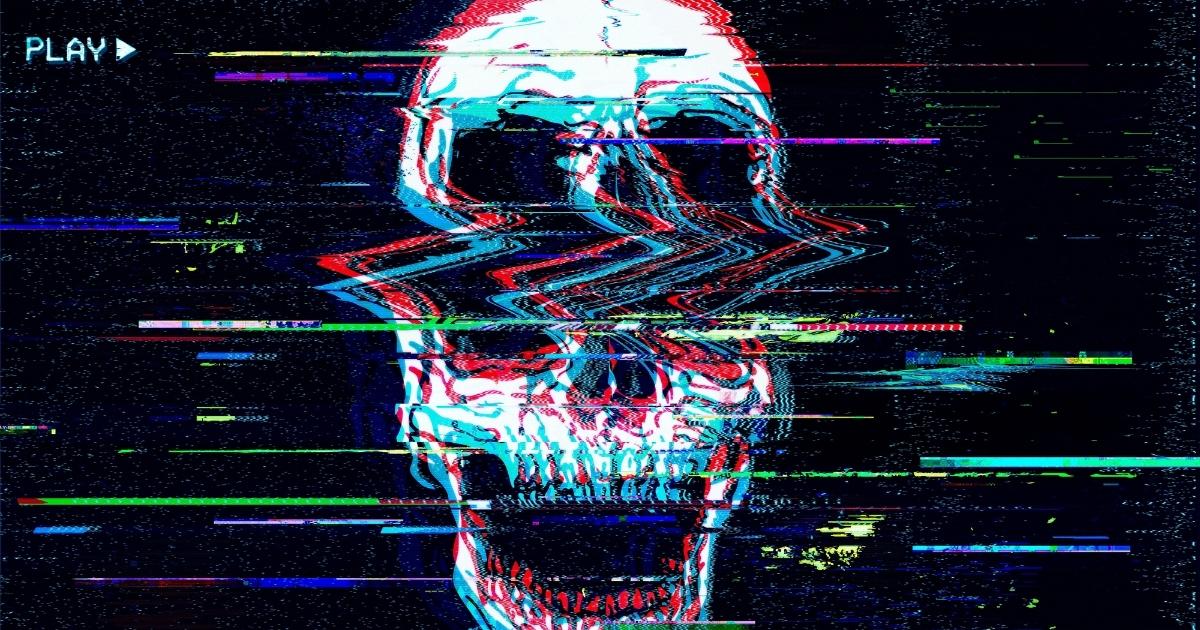

Salvage
By Sarah Fannon
When your whole household dies without you, it’s hard to grieve normally, and that’s why even though my entire family gathers in the living room, they don’t actually live there. My dad droid leans against the wall to survey the room with his arms crossed. My mom droid stands at the window where she used to spy on the neighbors. My grandma droid is plopped down in her armchair firmly in control of the lamp and the remote. And my brother droid sits crossed-legged in front of the television. When I watch TV, I sit in the corner of the room, so his head won’t block my view. Before I go to bed every night, I drape cloth over their silver bodies. I try not to interrogate the impulse or why it makes me feel safer.
Tonight, I call on Grandma last. I hold her droid’s hands and say, “I welcome Grandma Lou to speak with me this evening.”
The droids would mean little to me without seances. I built them as conduits to the spirit world and have been connecting with the family every night for weeks. They can’t stay long or say much, and their memories seem shrouded by the afterlife’s veil (I have to remind them my name is Jill), but I’d rather have a brief and flickering flame than total darkness.
Grandma says nothing. She’s usually quick to answer my call, but I’ll give her time. She hated being rushed in life and would often take longer out of spite. The best example was the time my dad told her she looked beautiful without lipstick and that no one would see her in the dark of the movie theater anyway.
“Where was your sense of urgency when I gave birth to you, ten hours of your big head taking its sweet time? You can let me have the dignity of preparing my lipstick before leaving the house, thank you.” She reapplied the lipstick twice for good measure and winked at me when our eyes met in the mirror.
I’m smiling now, but the memory hurts because she is more vibrant in recollection than she will ever be speaking to me like this, a shadow of herself. But it’s all I have left of her—of any of them. I call out for her again, but there’s no answer. I’ve already talked to my parents and my brother tonight, all small talk and platitudes before they winked out, but Grandma never showed up. None of them have been late before, which is good, because I don’t want to sit around and wait for the dead. All of this is sad and weird enough already without me resenting my deceased grandmother for having better things to do then chat with me on a Friday night. I throw a sheet over each droid and blow out the candles.
But as I begin climbing the stairs, whispers crawl up my back and perch on the nape of my neck. I consider running up to my room where I can close my door and burrow into the blankets and forget about it, but then I remember that I forgot to end the seance with my usual chants. Grandma must have come through and is waiting for me now.
Inside the living room, the whispering is louder, but it’s too muffled to understand. I reach for the top of Grandma droid’s head and pluck the sheet off.
“Sugar plum, sugar plum, sugar plum,” the droid whispers, and the relief makes me laugh. That was my grandmother’s favorite pet name for everyone.
“Come on, come through,” I say to bolster the weak connection. I light a single candle, if only for ambiance.
“Hey, Jill,” grandma droid says. “Sorry I’m late.”
I smirk. “You once told me that you’re never late because being late implies you intended to be on time.”
“You get me, sugar plum.”
I miss my family’s voices more than anything. The droids only speak in a flat and mechanical tone. Maybe if I were a more seasoned roboticist, I could sync old family videos and teach the droids how to channel my family’s voices, but I’m nineteen and still learning. And even though there is no warmth or familiarity in the way my grandma droid calls me sugar plum, I feel warmer hearing it anyway.
“I miss you so much,” she says. “Can I stay?”
I tilt my head and frown. “What do you mean, stay?”
“I don’t want to go back there. I don’t want to go back to the dark. I want to stay here with you.”
“I’m sorry. I wish you could stay with me, but I don’t think it’s possible.”
“If it were, would you let me stay?”
“Of course. Of course, you could stay.”
This is the most a droid has ever said to me but instead of comfort, I’m filled with dread. For the first time since first channeling my family, I feel guilty for what I’m doing, for not allowing them to rest. I’ve never really known how to leave things alone. My instinct is to tinker and fiddle and build stuff out of whatever I can get my hands on.
⚙
The night my family died, I came home late from the scrapyard, the cardboard box under my arm filled with gears and pipes. For years I’ve frequented the abandoned scrapyard at the edge of town, always creating art or building inventions with any materials I could scrounge. My room has always been littered with boxes of sharp and rusty things people didn’t want anymore. But I turn them into something worth keeping.
Greasy and content and covered in sweat, I came home that night and stopped abruptly in the middle of the walkway. The front door stood wide open and damaged, pieces of the wood lying in splinters on the ground. I wanted to pull out my heart, shove it in the box with the rest of the spare parts, and abandon it on the porch so I wouldn’t feel anything when I stepped inside. The longer I waited, the worse my imagination ran wild, so I finally forced myself through the doorway.
They were all there. Their eyes were open. They just weren’t moving. The house was ransacked, and their bodies lay heavy on the ground with red holes that burst like boutonnieres on their chests. I shook them one by one just in case they might gasp and sit up like drowned people coughing up water. But nothing could jolt them back.
I wandered the emptied house and tried to calculate what my loss would earn the intruders. My mom’s jewelry and my dad’s gadgets and my brother’s old video games. Even the cat-shaped bank Grandma Lou gifted me when I was little lay cracked open like a pinata. There couldn’t have been more than a few dollars-worth of coins in there.
I cried in my room for hours. Eventually, puffy-eyed and exhausted, I pulled myself over to my boxes of scrapyard finds and built myself a little cat in honor of the broken bank. By the time the sun tapped on the window, I got a wilder idea.
My first attempts at building a droid family felt juvenile, like a kid’s attempt to turn clay into sculpture and finding it impossible to shape delicately with their hands. I’d never built anything human-sized before. I didn’t tell the
police about the break-in, and I forged emails about vacations and illnesses to keep the neighbors and coworkers and my brother’s school off my back. I sat in my house with boxes upon boxes of metal parts and my family’s bodies as reference materials. I couldn’t have the cops dragging them away until I knew my droids matched them well enough.
Then one night I melded a face shape, checked it against my dad’s face for comparison, and giggled with joy when I realized I’d been going about it all wrong. The answer had been sitting with me, stinking up the place the whole time. A droid would be a shell of them, a pathetic and meaningless monument. But what if they weren’t empty?
⚙
I say goodbye to Grandma Lou because the longer I listen to her sadness, the harder my own is to hold. The monotonous tone makes it worse because it forces me to imagine how she really sounds on the other side where her misery isn’t masked by technology.
I throw the sheet over the droid and start to leave until a mechanical creak splits the silence. I turn back to the room where my family droids linger under white sheets like bulky ghosts. They are still and quiet, and I think I must have imagined the sound until a figure shifts in the dark. Grandma droid rises from the armchair, sheet slipping to the carpet.
“Have a good night, Jill.”
I ended the connection already. And I didn’t build the droids to move.
“Who are you?”
The droid marches forward. “Don’t you recognize me? We talk every night.”
I think of the teary and hopeful evenings holding this droid’s manufactured hands and feel sick to my stomach.
“How are you moving?”
“You invited me to stay. That’s all I needed, like a vampire getting permission to cross the threshold. It wouldn’t have been doable if this were only metal, but I can possess what’s left inside of it.”
I think about how the droids have the same indistinguishable voice; how I was so desperate for their return that I always settled for less, ignored everything that was wrong. Through building tears, I ask, “Was it ever them?”
“Only me, sugar plum. Only me.”
I shove my hand under my sniffling nose. I’ve been alone since that night I found them all on the ground.
“But just like these pathetic robot statues here,” the impostor continues, “I didn’t exist until you made me. You toyed with flesh and steel and the spirit world, your overwhelming sorrow, and I was birthed from that mess. Do you remember the first time you called on them? Nothing answered all night. The afterlife isn’t here. Please leave a message after the beep—beep! But your desperation festered into something that could answer you back: me. I awoke from the wires, grew bigger and stronger with every memory of them you shared, like you were shaping me into something real.”
Goosebumps race up my arms. I’m grateful I can’t see the entity in its true form, if it has one, but then I get even more freaked out imagining the thing all around me.
“Some part of you must have always known it wasn’t your family. It was just easier to ignore your gut.”
“I truly thought it was them,” I insist, a little too fiercely.
“Whatever you say. Anyway, I finally learned I can move through all the tech in your house, and last night I prowled up to your alarm clock to sleep by your cute little head. I heard your nasty nightmare about your grandmother, I heard you mumble ‘sugar plum.’ I knew it was the word I need to gain your trust this evening.”
The droid demon raises its arms in an attempted shrug. “And here I am.”
“What do you even want?”
“To feel this life, the one you go on and on about. I wasn’t lying when I said it’s been so dark where I’ve been. But now I can use you to get out of it.”
“I didn’t make these droids with weapons,” I say, crossing my arms and feeling smug. “I’m not helping you do anything.”
“Metal is weapon enough.”
Metal hands grab my head, but it’s too strong to budge. I’m sweating from the effort, and I relax my neck to breathe deeply before tensing up again.
“You know what’s funny,” the demon says, squeezing my head harder so that I yelp. “You stuffed them into robots to wear and now I’m going to wear you.”
“I won’t let you in,” I say through clenched teeth.
“I think you will. Let me in,” the droid says, and repeats it again and again while pressing against my head. It feels like it’s going to burst like a fruit. “Let me in, let me in, let me in.”
“Come in,” I scream when I can’t bear the pain anymore. The feeling of agony is replaced by shame. I barely put up a fight. I’ll be another dead body on the floor soon enough.
“Thanks for the invitation,” the droid says, and then I blackout.
⚙
When I wake up, I feel small and weak and muted. I look at my body, surprised I’m up and aware and still have one, until I realize it won’t move when I try. Then without my command, my body gets up and walks to the mirror. My mouth grins, and my hand wiggles its fingers at my reflection. My voice says, “Don’t worry, sugar plum. You’ll never be alone now.”
Copyright © 2022 Sarah Fannon
The Author

Sarah Fannon



